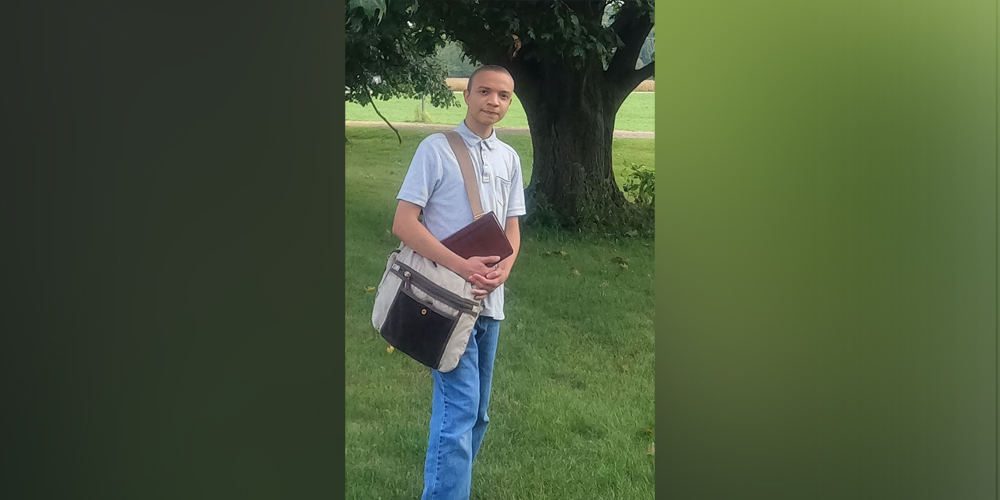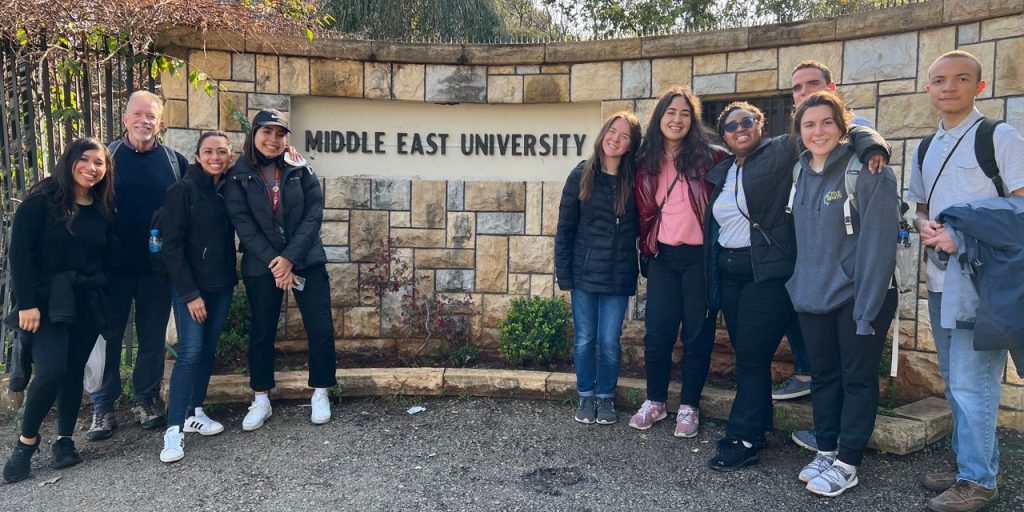A theology major at Andrews University shares his inspiring life story.

My name is Joseph Burton, and I am studying theology at Andrews University, having just finished my freshman year.
I grew up in a dysfunctional home characterized by family conflict and the presence of drugs and alcohol. Looking back on my childhood, I do not remember knowing much about the character of God. I did know about the Sabbath and other Seventh-day Adventist beliefs, however, and I clung to what I knew.
In my early teens, I clashed with various family members who tried to pressure me to do tasks on Saturday (Sabbath) or eat certain foods I considered unclean; I was told that Adventism was being “shoved down my throat.” During this time, I lived in an unstable position between relatives, and the Department of Human Services (DHS), recognizing the abusive situation, nearly placed me in foster care. I was told by the adults in my life that I was a “bad son,” that I was “ignorant,” and that nothing I had was due to me or belonged to me. From these experiences, I learned that living out one’s faith comes with a cross.
Following a cross-country move, I was able to attend an Adventist academy for a short period. I enjoyed my time there, interacting with dedicated teachers and being around other young people who loved God and wanted to know Him. However, others had a negative view of Adventist education, and I was removed from the academy. At this time, I did not know what to do. In my life, I had suffered from the poor choices of others and was continuing to suffer, being continually deprived of the opportunity to be a part of the church and develop faith-centered relationships. Through this series of hardships, the Bible brought me hope.

Alone most of the time, I began to read extensively in the Old Testament with the aid of the Seventh-day Adventist Bible Commentary. Subsequently, as I read the New Testament, I set my mind to memorize the book of 1 John. I loved the Johannine writings and, for some odd reason, felt compelled to memorize 1 John as if life depended on it. Until then, I had only memorized certain Psalms and isolated Old Testament passages, so this was quite an undertaking. What followed was something like magic.
I memorized 1 John with little difficulty, and afterward, other books with much greater rapidity. In a short period, I memorized all 13 chapters of Hebrews and all 22 chapters of Revelation. Books such as 2 Peter I memorized in a single day. I didn’t really have an elaborate method; somehow, I just retained everything as I read. Presently, I can recite 12 books of the Bible and am finishing memorizing Daniel and Hebrews a second time, now in German.
Reading and memorizing Scripture are important to me for one simple reason. God is Truth and His Word is Truth. We often fail to grasp the thought — the reality — that the contours of the earth will sooner give way than for one Word of Holy Writ to fail. The promises of the Bible are true: “And this is the record, that God hath given to us eternal life, and this life is in His Son” (1 John 5:11). In a world where tomorrow is uncertain, we can rest the anchor of our faith on the promises of the living God — they are immovable.
Although I finished high school in the public sphere with honors, I was determined to go to an Adventist university. I chose Andrews University because I saw that faith was taken seriously by the faculty there. Looking back on my virtual tour, I remember that the host faculty took the time to pray for me, an important experience for me coming from a secular school. I did very well in anatomy and physiology and chemistry in high school, and my teachers expected me to go into pre-med. However, medicine alone cannot nearly assuage the depth of human woe. I realized that the world’s most pressing need is for men and women of principle who will commit themselves to the work of God. I chose to pursue a theology degree here at Andrews University.
As a theology major, I have engaged in whatever ministry on campus has been presented to me, teaching Sabbath schools and participating in Scriptural Pursuit media ministry and the iCanvass club. During spring 2022, I had the chance to be part of a mission trip to Beirut, Lebanon. Although it seemed I was financially unable to go on this trip, I believed it was imperative for me to go. The reason is simple. God organized His church for service — we have light; we must share it. All are called to give their all for God and engage in whatever opportunities for service that might present themselves. Does our faith reach beyond the pages of a book? Do we in truth believe the words of the Great Commission, appropriating them to our lives? If so, it is imperative that we go.
There in Beirut, our team conducted a week of spiritual emphasis at Middle East University, giving sermons during the day and leading activity programs during the evening. We also conducted literature evangelism and met with Syrian refugee children at the Bourj Hammoud Adventist Learning Center. Most memorable to the mission experience were the sterling examples of faith that I encountered. As I met students from Iran, Iraq, and other nations — people who have made considerable sacrifices for their Adventist beliefs — I was reminded that, although they might be few, God still has His faithful ones who are willing to give up all to follow Him. It also was encouraging to hear others tell me that I helped to inspire them, following my recitation of the final chapters of Revelation, those on the New Jerusalem, at our last Sabbath vespers there.
In the future I plan to do more mission work, both at Andrews and professionally. There are many places in God’s last-day work that He counts on us to fill. Post-graduation, it is my intention to attend the Seventh-day Adventist Theological Seminary and then work in whatever avenue God calls me to — wherever there is the greatest need and the least desire to go.
Through the difficulties in my life, I have seen God working. As much as godly friends and support are a blessing, it is pivotal for the individual to develop a personal relationship with God. We must actively choose our identity as a child of God, establishing the perimeters of our own faith. This is what my life circumstances have led me to reach out for. Then, as we make the choice to follow God, He will lead us and make His character known — He will. As an old hymn goes: “Wer nur den lieben Gott lässt walten” (“Who will but let the good Lord guide”). He is very near to us, but are we willing to give Him the reins?
The original version of this story was posted by the Lake Union Herald.







